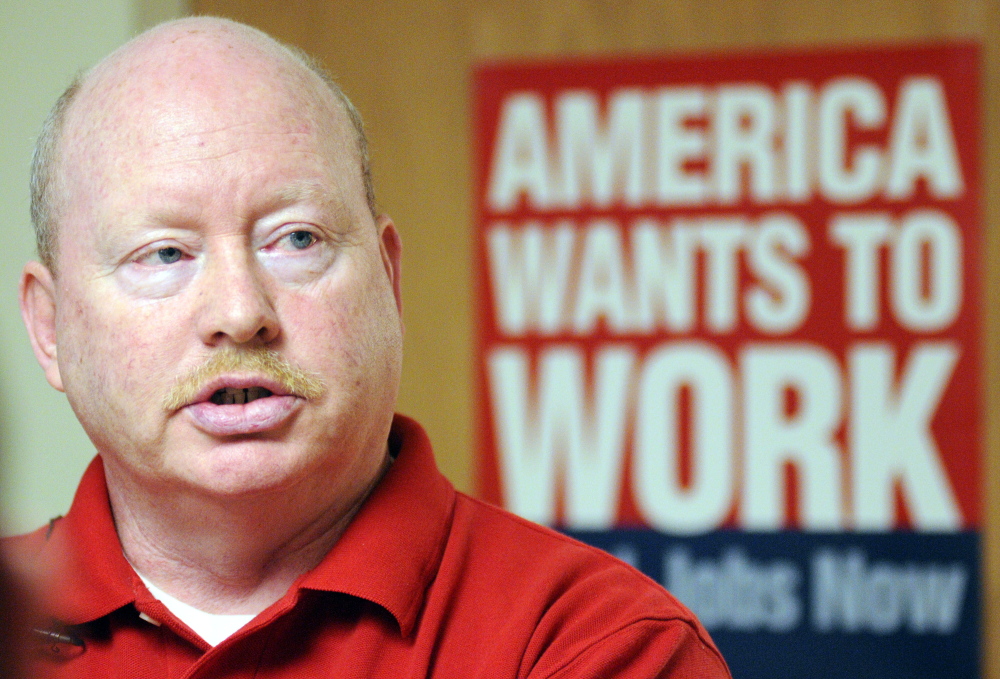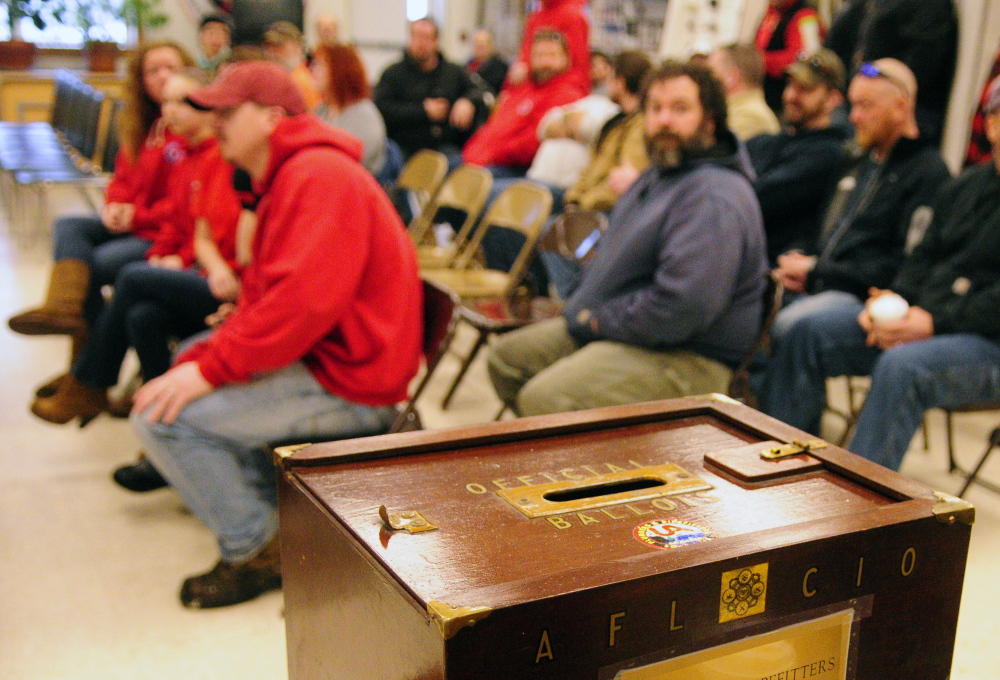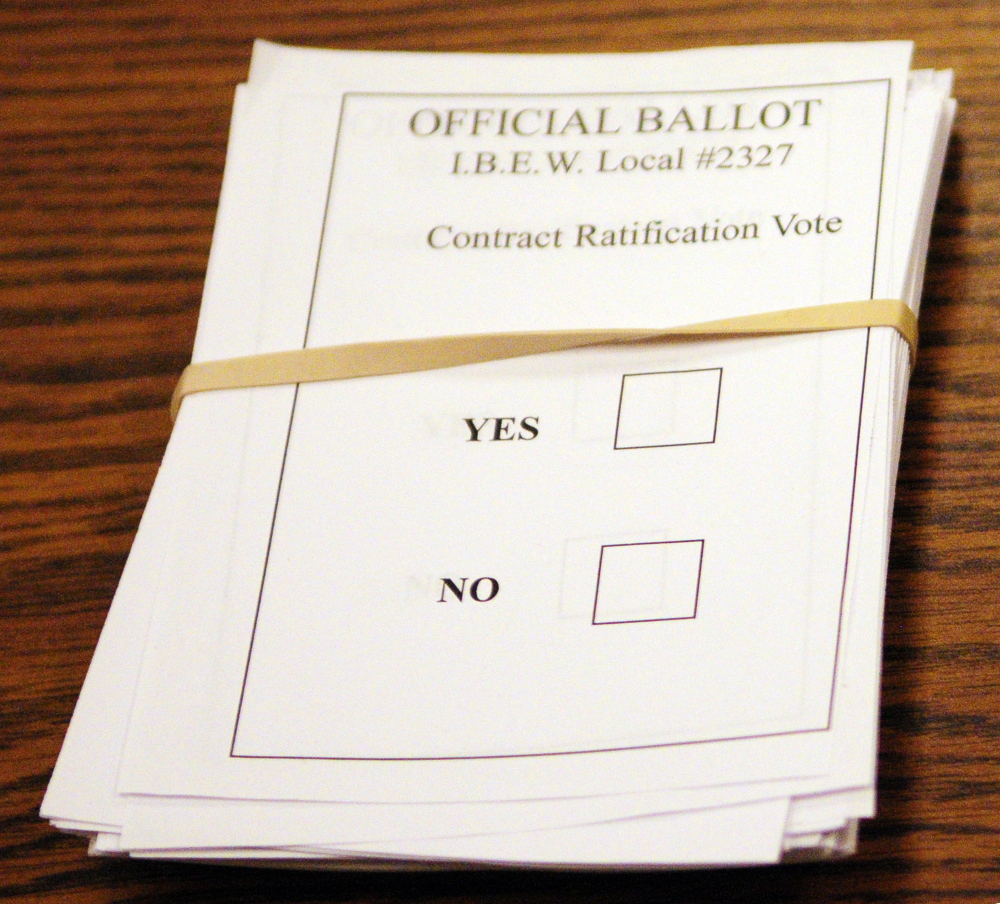AUGUSTA — Tim McLean, a 20-year cable splicer for FairPoint Communications, says the contract between the company and members of the unions who work for it was a mixed bag.
When the South Thomaston man retires in a decade, his pension won’t be quite as rich. But after four months on strike, things were difficult. He said he went to a food bank for the first time recently.
McLean and about 1,700 other Fairpoint workers — most members of International Brotherhood of Electrical Workers Local 2327 as well as some members of the Communications Workers of America — have been on strike since October. Fairpoint provides much of the landline phone service in northern New England, as well as Internet and other services.
On Sunday, final votes ratifying the agreement were held in Augusta and Vermont after other votes in Maine and New Hampshire. Workers will return to their jobs on Wednesday. In Maine, about 800 workers will go back to work.
While spirits were high before and after the vote at the IBEW hall in north Augusta, some mourned the cuts they had to accept to get back on the job with the strike in its 128th day.
“I’m happy enough to go back to work,” McLean said. “I’m not happy that we’ve lost a lot of benefits, no, but I’ll be happy after four months just to have a paycheck again.”
The striking workers’ unions were $500 million apart from Fairpoint’s position in negotiations last summer, when the company, citing a desire to be competitive in their market, wanted to freeze pensions, eliminate health care coverage for retirees and have employees pay 20 percent of health insurance premiums.
In the agreement, neither side got all it wanted. A sheet given to workers on Sunday said pensions will continue for existing employees at a reduced rate capped at 30 years, retirees will get stipends for health care until age 65 and employees will pay 15 percent of health premiums.
In a news release the unions said the health plan will be union-administered “with better benefits that will cost workers and the company less.”
The agreement was hammered out after the unions and company entered federally mandated mediation in January. Peter McLaughlin, business manager of IBEW Local 2327, which represents Maine telephone workers, and co-chairman of the committee that handled bargaining, called it “quite an arduous process.”
“We didn’t leave anything on the table, so this is as good as it’s going to get for our workers,” he said.
The meeting in Augusta ahead of the vote was closed to the public, but there were many laughs and rounds of applause. When Caralee Cleary, a Fairpoint dispatcher from Sidney, walked out of the union hall after the vote, she yelled, “It’s over!”
She said she had been concerned that Fairpoint had contracted her job out, which didn’t happen. She said she could handle the pension and health care changes as long as it gets workers off the picket line and back to work.
“I’m tired of freezing,” Cleary said. “I’m an inside girl, not an outside girl.”
Still, Alan Castonguay, a building mechanic from Livermore, wistfully looked at the piece of paper outlining the deal, struggling at times for words while he spoke to a reporter.
“I wish I could be more positive about it, but I don’t know,” he said with his voice trailing off. “We lost a lot.”
Michael Shepherd — 370-7652
Twitter: @mikeshepherdme
Send questions/comments to the editors.






Comments are no longer available on this story